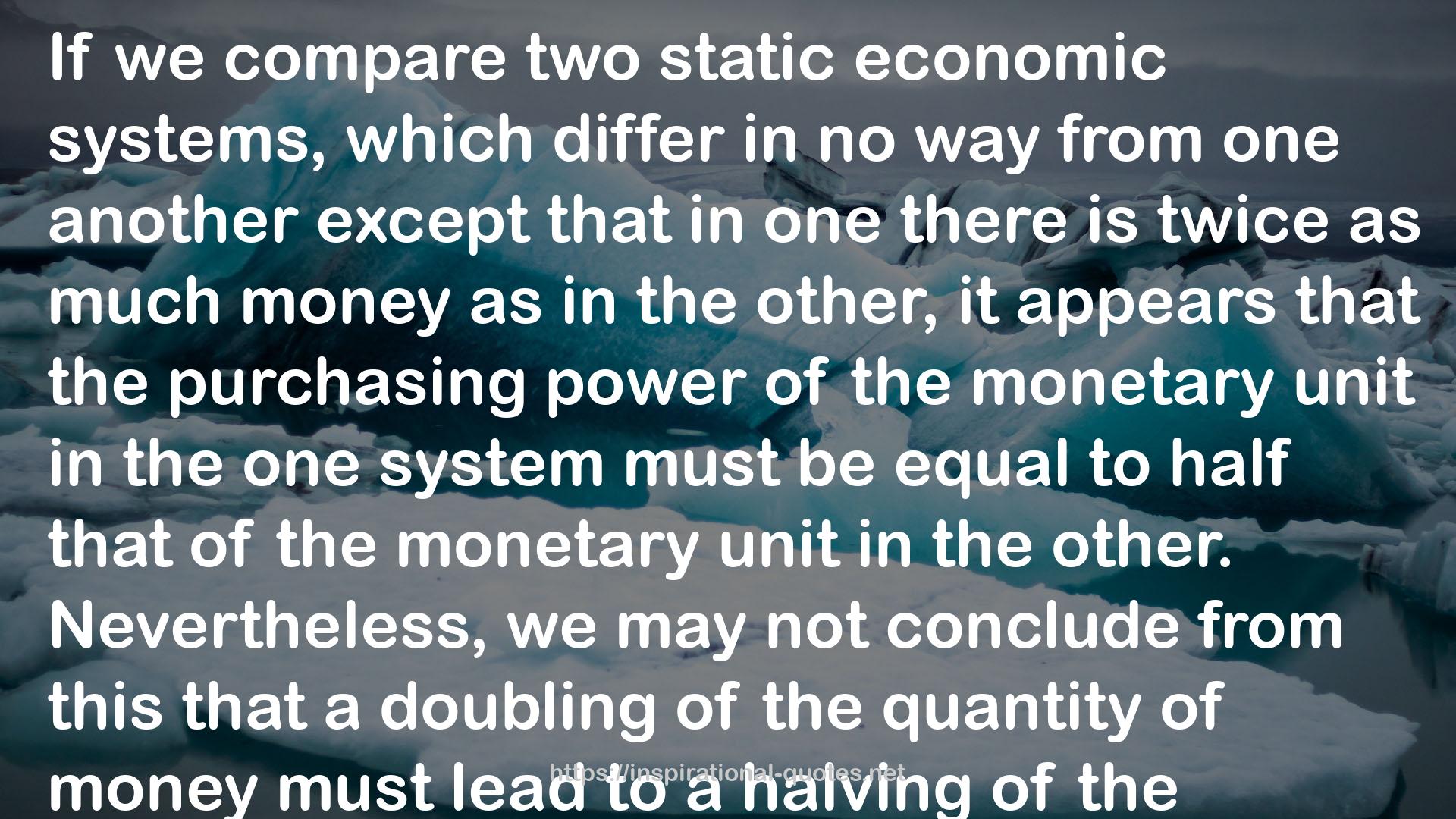" If we compare two static economic systems, which differ in no way from one another except that in one there is twice as much money as in the other, it appears that the purchasing power of the monetary unit in the one system must be equal to half that of the monetary unit in the other. Nevertheless, we may not conclude from this that a doubling of the quantity of money must lead to a halving of the purchasing power of the monetary unit; for every variation in the quantity of money introduces a dynamic factor into the static economic system. The new position of static equilibrium that is established when the effects of the fluctuations thus set in motion are completed cannot be the same as that which existed before the introduction of the additional quantity of money. Consequently, in the new state of equilibrium the conditions of demand for money, given a certain exchange-value of the monetary unit, will also be different. If the purchasing power of each unit of the doubled quantity of money were halved, the unit would not have the same significance for each individual under the new conditions as it had in the static system before the increase in the quantity of money. "
― Ludwig von Mises , The Theory of Money and Credit
